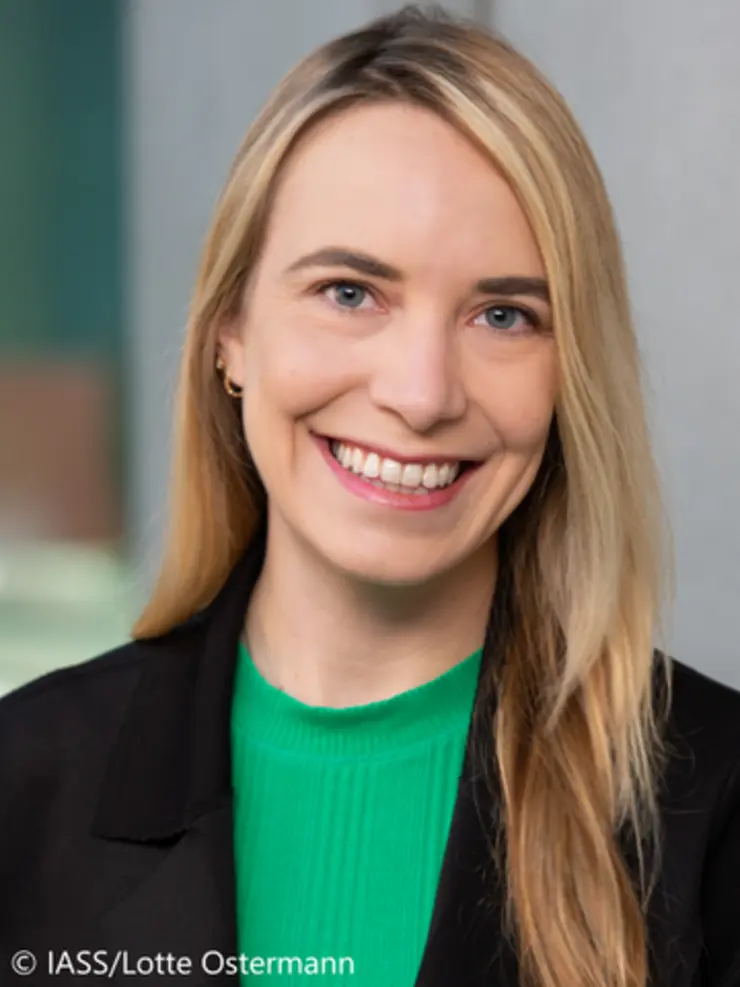What can early career researchers get from international academic conferences?

Getting accepted at academic conferences can be tricky. Yet, participating is an excellent chance to get first-hand information about cutting-edge research, find dialogue partners, and partake in a broader scientific community. Find out how through the experience of Karina Marzano, one of our Brandt School early career researchers, at the 2022 European Consortium for Political Research (ECPR) General Conference.
This summer, for the first time during my ongoing PhD., I finally got to fully benefit from participating in international academic conferences. The Covid-19 pandemic started just about the same time as my studies. As a result, I have attended almost only virtual events. Although online meetings have some positive sides, they fall short in one crucial aspect. Virtual conferences make it harder for participants in their early career to integrate into a broader scientific community.
During the first years of the pandemic, going virtual was the only safe option to continue offering large platforms for academic debate. Besides, online events also had some unintended positive consequences. A highlight is that participation increased and became more diverse, especially for researchers from far-flung regions impacted by prohibitive travel costs and other adverse conditions. Because of the virtual format, some could participate for the first time.
Integrating in the academic community is critical for early career researchers, and international academic conferences offer an excellent opportunity. When I moved to Germany as an early career researcher, I hoped to join the academic environment and benefit from exchanges with more experienced scholars. In the first years, I had to settle for trying and doing that online.
Science community building might still happen in online conferences. I, for instance, was fortunate during my first participation at the International Studies Association (ISA) Annual Convention in 2021. Although that was an entirely virtual edition, I came across a Twitter post from a senior researcher in my field, encouraging junior scholars to connect. Thanks to her initiative, I am now part of a private governance scholar community. As a member, I benefit from interacting with researchers from around the world, many of whom I only knew as names in my literature review.
In-person conferences, however, are the whole package: They offer many formal and informal settings for intense debates and networking, as thousands of scholars meet in one place. Every activity – from the coffee break to the reception – is planned to bring academics together. And I must say, achieving that is easier when the event occurs at a site like the University of Innsbruck – surrounded by the Austrian Alps, which are sometimes even visible from the classroom window.
In-person conferences are also an excellent chance to escape the solitude of daily desk offices to be exposed to cutting-edge research, including those happening in multiple research fields. Moving up and down the stairs of the university, one can attend panels organized by diverse ECPR Standing Groups, ranging from “Energy Politics, Policy, and Governance” to “Critical Peace and Conflict Studies”. By moving around the campus and joining different activities, researchers can learn about common trends and synergies connecting several research areas.
For example, although my research lies in the interconnections between transnational private governance and the global value chain (GVC) approach, I presented at a panel called “Beyond the Usual Suspects: Interest Groups in the Global South”. Due to decisions made during my research, I started delving into the interest groups’ literature. ECPR offered me the perfect opportunity to test some of my arguments with an entirely different audience than I am used to. These are always fruitful exercises that may bring new light to one’s research.
But for those starting to discover this new world of international academic conferences just now, be aware: The whole procedure is challenging. It begins with the search for thematic-appropriate events, followed by putting together a well-written, concise, and exciting abstract. Then you still face every so often competitive submission review processes. In many cases, after acceptance, there is a need to apply for funds – it is quite an expensive process if you consider registration fees and travel costs. These dynamics raise, of course, important issues concerning unequal participation. Finally, once the previous stages are overcome, you write a paper, prepare and give your presentation. After all that, it is time reviewing all the work.
These comments must not come as discouraging, though. All these efforts are undoubtedly worthy, especially as conferences are good occasions to find dialogue partners and receive constructive feedback beyond the gates of one’s research center.

Karina Marzano is a PhD Candidate at the Willy Brandt School of Public Policy at the University of Erfurt under the supervision of Professor Andreas Goldthau. She is also Associate Fellow at the Institute for Advanced Sustainability Studies (IASS), Potsdam, Germany. She is a licensed attorney and holds a Bachelor of Laws degree at the Federal University of Minas Gerais, Brazil; an MBA degree in International Relations from the Getulio Vargas Foundation, Brazil; and a Master of Laws (LL.M.) degree in European Law and Integration from the Europa-Institut, Saarland University, Germany. Her PhD project centers on Private Environmental Governance and the Global South.
~ The views represented in this blog post do not necessarily represent those of the Brandt School. ~